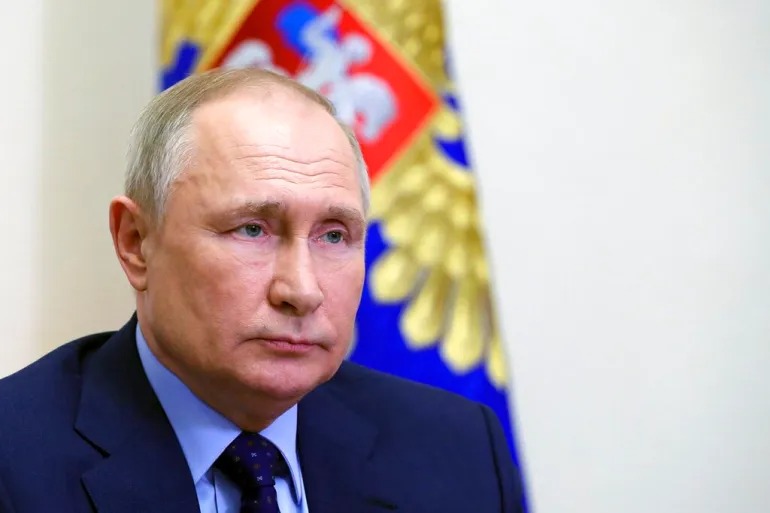Kremlin Rejects U.S. Leadership in Shaping a “New World Order”
Russia has challenged the U.S. President’s assertion that the United States should lead the way in establishing a fresh “world order,” dismissing it as an outdated and “American-centric” perspective. This disagreement underscores the growing rift between the two global superpowers.
Clash Over Ukraine and Global Alliances Deepens Tensions
The dispute between the United States and Russia reveals a deeper divide, fueled by conflicts such as Russia’s war in Ukraine and Moscow’s strengthening ties with American adversaries like Iran and North Korea. The Ukraine situation, in particular, has led to extensive U.S. sanctions against Russia and substantial aid to Ukraine.
Biden’s Comparison of Putin and Hamas Adds to Strained Relations
In a further strain on relations, President Joe Biden has frequently drawn parallels between Russian President Vladimir Putin and Hamas, the governing Palestinian group in Gaza labeled a “terrorist” organization by the U.S. This rhetoric has escalated tensions between the two nations, as they continue to grapple with their conflicting global ambitions.
In-Depth News Report
A profound divergence of opinions has surfaced between the United States and Russia, highlighting a substantial rift in their visions of the global order’s future. This discord stems from U.S. President Joe Biden’s assertion that the United States should play a pivotal role in shaping a new “world order.” Moscow, in contrast, deems this perspective as antiquated and “American-centric.”
Kremlin spokesperson Dmitry Peskov responded to President Biden’s statement by emphasizing the need for a “new world order” while firmly rejecting the idea of U.S. leadership in this endeavor. Peskov articulated his stance, asserting that any new global system should be “free from the concentration of all mechanisms of world governance in the hands of one state.”
The root of this diplomatic clash lies in President Biden’s recent speech, delivered on Friday, where he addressed a spectrum of global issues, ranging from the Ukraine crisis to matters involving Taiwan and Israel. In his speech, President Biden expressed that the “world order” established over the past half-century is “running out of steam.” He contended that the United States must now take on the role of “uniting the world” to forge a new global order that promotes peace.
“In this part we disagree because the United States, … no matter what world order they talk about, they mean an American-centric world order, that is, a world that revolves around the United States. It won’t be that way anymore,” Peskov remarked, underscoring the fundamental disagreement between the two nations.
This escalating tension underscores the deepening chasm between the United States and Russia, both of which are locked in bitter disputes over Russia’s war in Ukraine and Moscow’s burgeoning alliances with American adversaries such as Iran and North Korea. Since Russia’s invasion of Ukraine in February 2022, the United States has responded with far-reaching sanctions on entities and individuals linked to the Kremlin. Additionally, the U.S. has provided Ukraine with substantial humanitarian, financial, and military assistance.
Adding to the diplomatic friction, President Biden has recurrently drawn parallels between Russian President Vladimir Putin and Hamas, the Palestinian group that governs the Gaza Strip and is designated as a “terrorist” organization by the United States. Biden has argued that both Putin and Hamas represent threats to neighboring democracies, intensifying the already tense relationship between the two global superpowers.
As these diplomatic tensions continue to mount, the world watches with a keen interest in the potential ramifications on international relations and the evolving dynamics between the United States and Russia.
















